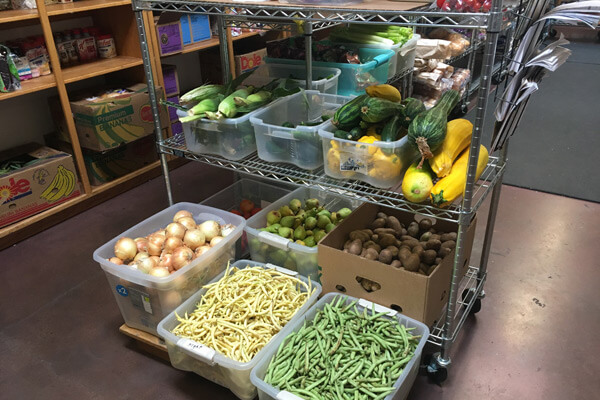By TIM FAULKNER/ecoRI News staff
 It
may get a lot easier to donate excess food, as a bill that allows institutions
to give away food cleared its House committee with the backing of many key
stakeholders.
It
may get a lot easier to donate excess food, as a bill that allows institutions
to give away food cleared its House committee with the backing of many key
stakeholders.
After
resisting similar bills in previous years, the Rhode Island Department of
Health (DOH), the Rhode Island Food Dealers Association, and the Rhode Island
Hospitality Association all support the legislation to reduce food waste and
curb hunger.
“We
want to make sure food goes to its highest and best use and that is feeding people,”
said Eva Agudelo, founder of Hope’s Harvest RI, a
“gleaner” service of volunteers who deliver excess agricultural products from
farms to hunger-relief organizations.
The
bill (H5322) is the result of
the 2018 Task Force on Food Donation and Food Waste. The House commission found
that a fear of lawsuits prevented restaurants, schools, and makers from
donating excess food.
The Rhode Island Food Donation Act eases that worry by stating that individuals, schools, grocers, restaurants, hotels, caterers, farmers, hospitals, and food-makers can donate to gleaners, food pantries, and the public with immunity from criminal and civil liability.
The
food can also be donated after its sell-by date or
expiration date as long as it is fit for human consumption.
“Sell-by
dates have nothing to do with food safety. They only deal with the quality of the
food,” Sarah Bratko of the Rhode Island Hospitality Association testified at a
Feb. 27 House hearing.
The
bill also allows DOH inspectors to educate food establishments about the
liability protection and to promote food donation during regular inspections.
As
part of its Rhode to End Hunger Initiative,
DOH keeps a map of all Rhode Island
soup kitchens and pantries that accept food donations.
According
to DOH, about 13 percent of Rhode Islanders or some 56,000 households suffer
from food insecurity.
“At
a time when there are significant numbers of Rhode Island families that do not
have a sufficient diet and are in need of food this should at least help in
provide more offerings for them,” Steven Arthurs, president and CEO of the
Rhode Island Food Dealers Association, wrote in submitted testimony.
The
legislation is also part of a larger effort to reduce the 100,000 tons of food
scrap that is buried annually in the Central Landfill in Johnston. Food scrap
makes up the largest source of waste in landfills, according to the National
Resources Defense Council.
Nationally,
school districts are experimenting with programs to send leftovers home with
students or deliver them to families in need.
The
bill was unanimously approved April 10 by the House Committee on Health,
Education & Welfare. It awaits a date for a vote in the full House of
Representatives.
The
Senate version of the bill (S027) was introduced
Jan. 17 but has yet to have a hearing in front of the Senate Judiciary
Committee.